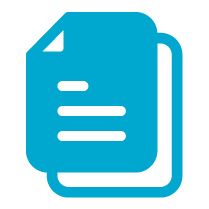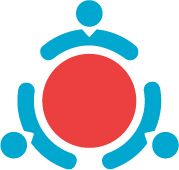JoLLE Winter 2021
Virtual Conference
Sunday, Feb. 7
Toward Transformative Justice
Cultivating Accountable Community and Empowering Solidarity in Language and Literacy Education
AGENDA
Sunday, Feb. 7
9-9:45 a.m.
Breakout sessions 4

PAPERS
“Ethical Possibilities in Foreign Language Education: The Classroom as a Community of Difference”
Ebtissam Oraby, George Washington University
Keywords: Foreign language literature, alterity, community of difference, ethical educative community
This paper reports findings of a classroom ethnographic study that investigates the reading of Arabic literature in U.S. foreign language university education as a site for engagement with alterity. Additionally, this paper discusses findings on conditions of alterity in foreign language literature classrooms and particularly the condition of peer as other. It explores the possibility of forming an ethical educative community in foreign language classroom, a community that embraces and welcomes difference.
“Bibliotherapy and Student-Developed Text Sets: Developing Social Consciousness Through Curating Texts”
Dixie Keyes, Arkansas State University
Keywords: Text sets, bibliotherapy, social consciousness, teacher education
A continuous goal for applying understandings of literature is to consider a variety of texts from different authors as students learn about the world. A unique way to shape this process is for teachers to present anchor text sets centered in socially-conscious themes. Students then read, explore, and develop their own curated text sets as extensions of the original theme. This can be perceived as a bibliotherapeutic approach to gain insights into oppression, activism, and awareness.

PANELS
“Fostering Heritage Language Preservation in Educational Settings”
Bhairvi Trivedi, University of Georgia and Zameena Jivraj, Adelphi University
Keywords: Bilingualism, heritage language, multilingualism
This presentation will explore suggestions for promoting heritage language preservation in educational settings across age groups. The audience will have the opportunity to reflect upon interprofessional collaboration, cultural responsivity, and means to promote a language and literacy rich environment. The audience will also engage in various activities in order to promote meaningful practices for heritage language preservation in their own educational contexts.
“Transcending School Fronteras: Bilingual Paraprofessionals through the Lens of Gloria Anzaldua’s Borderlands”
Elizabeth Dubberly, University of Georgia
Keywords: Translanguaging, support staff, language and literacy education, decolonizing teaching, Gloria Anzaldúa
Using the metaphor of the “borderland” of Anzaldúa, this paper considers the liminal space occupied by bilingual school support staff, especially in crisis situations such as the COVID-19 pandemic. This session will encourage school staff members to explore their own identities and identify frontiers through which they might connect to students and families in times of crisis outside of their traditional roles.
10:15-11 a.m.
Breakout sessions 5

PAPERS
“Who are the ELA Teachers Teaching in Rural Secondary Schools?” Brandy Pass, University of Georgia
Keywords: Rural education, pre-service teachers, teacher education, language and literacy education
There is constant conversation in education surrounding the relevance of curriculum, particularly in ELA. The understanding of that relevance begins with the teachers’ connection to the culture and community in which they are teaching. This presentation explores the background of secondary ELA teachers in one rural community, while attempting to understand their perception of preparedness to meet the unique needs of students in rural secondary classrooms in relation to their own background and training.
“Diverse Young Adult Literature Your Classroom Needs Now” Hunter Strickland, Anderson University
Keywords: Young adult literature, reading and writing, teacher education
In the ever-evolving world of young adult literature in secondary English education, there is a constant need for middle grades and young adult literature that not only speaks to students but speaks to the social world around them. This session will provide secondary English teachers with must-read diverse literature for their students and for their classrooms. Attendees will workshop finding high-interest literature to address the gaps in their school’s required curriculum.
“Epistemological Racism in Research Writing and Publishing Practices” Anoud Abusalim, American University of Sharjah
Keywords: Epistemological racism, knowledge production, research writing and publishing
The presentation aims to capture some aspects of the epistemological racism experienced by researchers, who write and publish in the English language, while being based outside the white Euro-American world. By reporting on the challenges associated with the current knowledge production system that is predominantly white Euro-American, the presentation aims to advance epistemological antiracism by encouraging different/new forms of knowledge production.

PANELS
“Equity and Access to High Quality Professional Learning: Disrupting Power Structures”
Mellissa Teston, University of South Florida
Keywords: Access, equity, literacy coaching, professional learning, transformation
How can teachers advocate for their professional literacy learning? Pressures for student performance during an era of accountability often include literacy coaching as a driving force for reform (Kurz, 2017). Coaching’s potential for effective professional development (Gibbons 2017) is minimized when access is limited to few educators. Unfortunately, coaching is often positioned as a solution for deficit literacy teaching. This session will examine research on professional learning with the lens of equitable access to literacy coaching.
“Asian female International Students’ Identity Negotiation and Reconstruction through Visual Journaling”
Yixuan Wang and Bokyoung Jo, University of Georgia
Keywords: Arts-based educational research, interdisciplinary research, translanguaging, feminism
This presentation explores how Asian female international graduate students in U.S. universities experience academic, cultural, linguistic, and racial challenges before and during the COVID-19 pandemic through visual journaling as recording, conversations, and healing. The presenters will discuss the experiences of Asian female doctoral students during the pandemic through the interdisciplinary lens of translanguaging (García 2009; García & Li, 2014), arts-based educational research ABER, feminism, and raciolinguistics (Alim et al., 2016).
11-11:20 a.m.
Social event: Let the Eyes Rest, a Musical Break
11:30 a.m.-12:15 p.m.
Breakout sessions 6

PAPERS
“Language and Literacy for All: Social Justice and the English Classroom”
Tori Simmons, A. C. Flora High School
Keywords: Social justice, language, curriculum
Students from marginalized communities are often left out of the English classroom curriculum. These Black, Indigenous people of color (BIPOC) often have their language and lived experiences ridiculed, mocked, and ignored. This session looks to offer teachers ways to include these students, their language, and their lived experiences into the curriculums and conversations of the English classrooms.
“The Shifting Language and Literacy Practices of Two China-U.S. Transnational Youths as New Immigrants”
Tairan Qiu, University of Georgia and Xiaochen Du, University of Florida
Keywods: Transnationalism, language and literacy practices, transnational youths
This comparative case study explores the interrelationship between China-U.S. transnational youths’ social experiences and their shifting language and literacy practices. By focusing on the experiences of two China-U.S. transnational youths’ during their first two years in the U.S., the researchers aim to understand how larger sociocultural contexts influenced the two youths’ identity (re)construction and how their fluid language and literacy practices contributed to making sense of the social realities they lived in.

PANELS
“A Call for More Meaningful Training”
Meg Petersen, Plymouth State University
Keywords: Teacher education, social Justice, equity
Pre-service teachers in 2020 are, like many of us, caught up in forces that pull at them from all directions. The disruption of the COVID-19 pandemic and the contentious atmosphere leading up to the 2020 election with racial upheaval in the wake of police killings of Black people, leaves many students unmoored and confused. A series of interviews with white teacher candidates explore this confusion in depth and unearths the productive aspects of this disruption.
“A Black Woman Speaks...to Allyship”
Allison Upshaw, Stillman College
Keywords: Performance, equity, womanism, feminism, racism
This is a reinterpretation of a performance piece by Beah Richards. Detailing both parallel and perpendicular lines of the lived experiences of Black and White women, this performance revisits the work of allyship needed in the 21st century.
1-1:20 p.m.
Social event: Full body stretch-flexibility, mobility, and relaxation
1:30-2:40 p.m.
Roundtable sessions 2

ROUNDTABLE 1
“Personal Faith in Public Schools: Living Derrida’s “Ethical Perhaps” in the Classroom”
Terrence Miller, East Jackson Comprehensive High School
Keywords: Religion, education, Doucault, Derrida, ethics
From the personal faith of teachers (and students) to the religious discourse that permeates public education in America, religion exists in the classroom. As teachers attempt to produce themselves as ethical subjects, their religious beliefs can stand in tension with the pseudo-secular space of the school. Derrida’s deconstruction and Foucault’s work on the ethical subject can give insight into this dilemma and provide educators a way to live within the certainty of uncertainty.
“Empowering and Supporting Refugee Students”
Sarah Williams, University of North Georgia
Keywords: Refugee, literacy practices, transnational
The refugee population is one of the fastest growing populations in the U.S. Therefore, teachers need more professional development and understanding of how to best meet refugee students’ needs. This presentation will focus on reimagining the classroom as a transitional space for refugees by highlighting effective classroom strategies to use and how to build upon and value refugee students’ literacy practices.
“‘I’m Upset All the Time About Stuff like That’: Interrogating ‘Safety’ and Precarity in Teaching and Learning about Sexual Assault Narratives”
Amber Moore, University of British Columbia
Keywords: English education, teacher education, rape culture, sexual assault narratives, trauma literature, safety, precarious moments
For this presentation, Amber Moore aims to explore how precarious moments surfaced in pre-service teachers’ responses to sexual assault literature and pedagogy. This investigation emerges from my doctoral research—a study where Moore explores how 24 teacher candidate participants took up readings of a sexual trauma text set and responded to pedagogy for teaching such texts with adolescent students in the Canadian K-12 public school system. With the aim of thinking ahead to how pre-service teachers might cultivate radical communities prepared to address the pervasiveness of sexual assault and the insidiousness of rape culture in the secondary English classroom, Moore will share the ways in which teacher candidates’ experiences of witnessing precarious moments impacted their attitudes towards considering this pedagogy.
“Reporting on Incarcerated Spaces: Critical Media Literacy and Stewart Detention Center News”
Susan Cridland-Hughes and Stephanie Madison, Clemson University; Mikel Cole, University of Houston
Keywords: Content analysis, critical media literacy, immigration, incarceration
In this proposal, the authors explore the changing tenor of news reporting over the life of a detention center in rural Georgia at local, regional, state, and international levels, using critical media literacy and content analysis to examine how this reporting changed over time. Findings indicate that reporting reflected shifts in the national discourse, but also that those shifts were more prevalent at the state, national, and international levels than at the local levels. These differences indicate the need for more robust media literacy education in schooling environments.

ROUNDTABLE 2
“Creating Local Language Tests: Pre-service Language Teachers’ Experience and Concerns”
Ferit Kılıçkaya, Burdur Mehmet Akif Ersoy University
Keywords: Assessment, language tests, pre-service teachers, reading
This presentation aims to bring forth the experience of pre-service language teachers in creating local language tests for 8th graders in Turkey as a partial requirement of the foreign language testing and evaluation course offered during the last semester of the four-year language teacher training program.
“Promoting Students’ Academic Language Development in a Multilingual Classroom--SFL-informed Teacher Education”
Dan Jin, University of Georgia
Keywords: Systemic functional linguistics, multilingual students, academic language development
This paper aims to raise teachers’ awareness and develop teachers’ ability in using SFL-informed teaching methods to support multilingual students’ academic language development. In the paper, Dan Jin begins by reviewing the educational issues existing in current classrooms and then take a close look at what scholars and teachers do to encounter the issue. Lastly, Jin will review the effect SFL-informed training has on developing teachers’ instructional methods.
“TPRS Embodied Practices in an Under-Resourced L2 Classroom: A Reflexive Account”
Olumide Ajayi, University of Georgia
Keywords: TPRS, embodied practices, under-resourced L2 classroom
From a Bakhtinian dialogic lens, this study investigates performative and discourse practices unfolding in a 6th grade ESL TPRS facilitated classroom in rural Nigeria. By focusing on the ritual elements in classroom interaction, findings show that classroom discourses are contextually embedded and function differently across contexts.
3-4 p.m.
Keynote speech with K. Wayne Yang
“Literacy for Solidarity: Or, How to Honor Ancestors Not Our Own”
M. Jacqui Alexander says, “We must be fluent in each other’s struggles." This talk builds from Sealy-Ruiz’s opening keynote on critical love and racial literacy. How can we grow our literacies in pro-Blackness, in land pedagogy, in our de/colonial relationships, in each other’s struggles? K. Wayne Yang will discuss literacy for solidarity by drawing on examples from Indigenous land acknowledgments, modern day plantations, Black feminist writings, social media organic intellectuals, Asian abolitionist politics, and migration stories.
6-7 p.m.
Social event: Get to Know JoLLE Editorial Board Members
